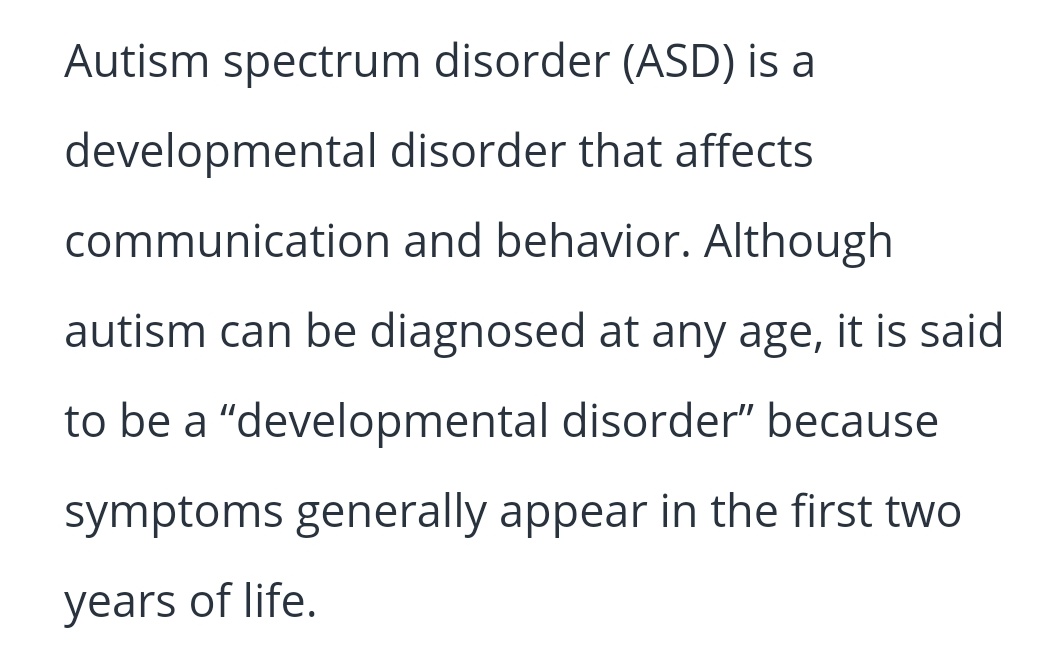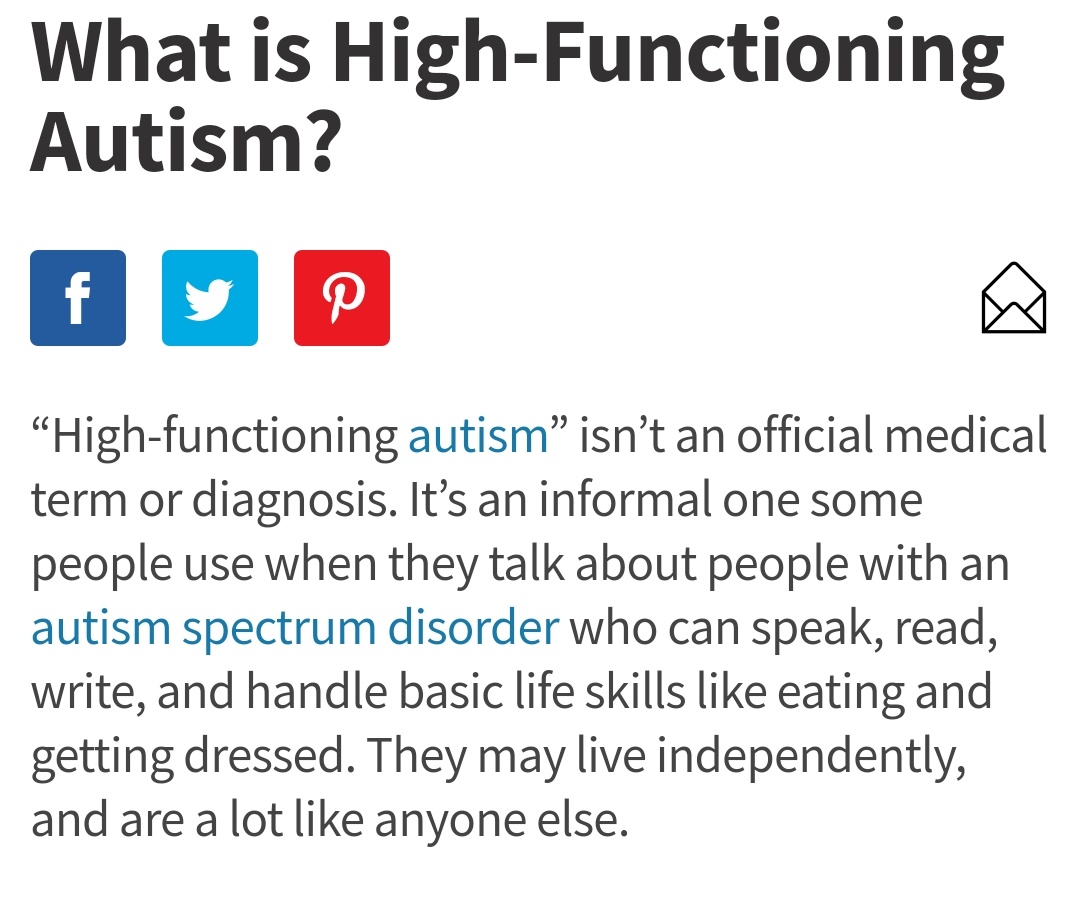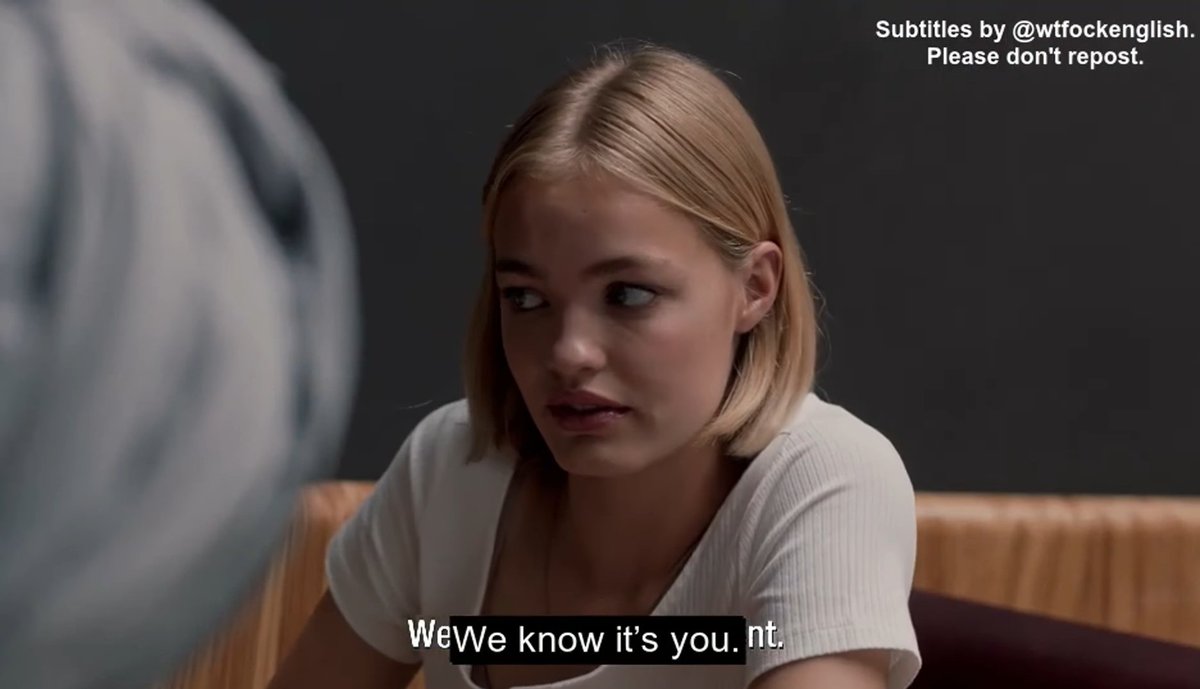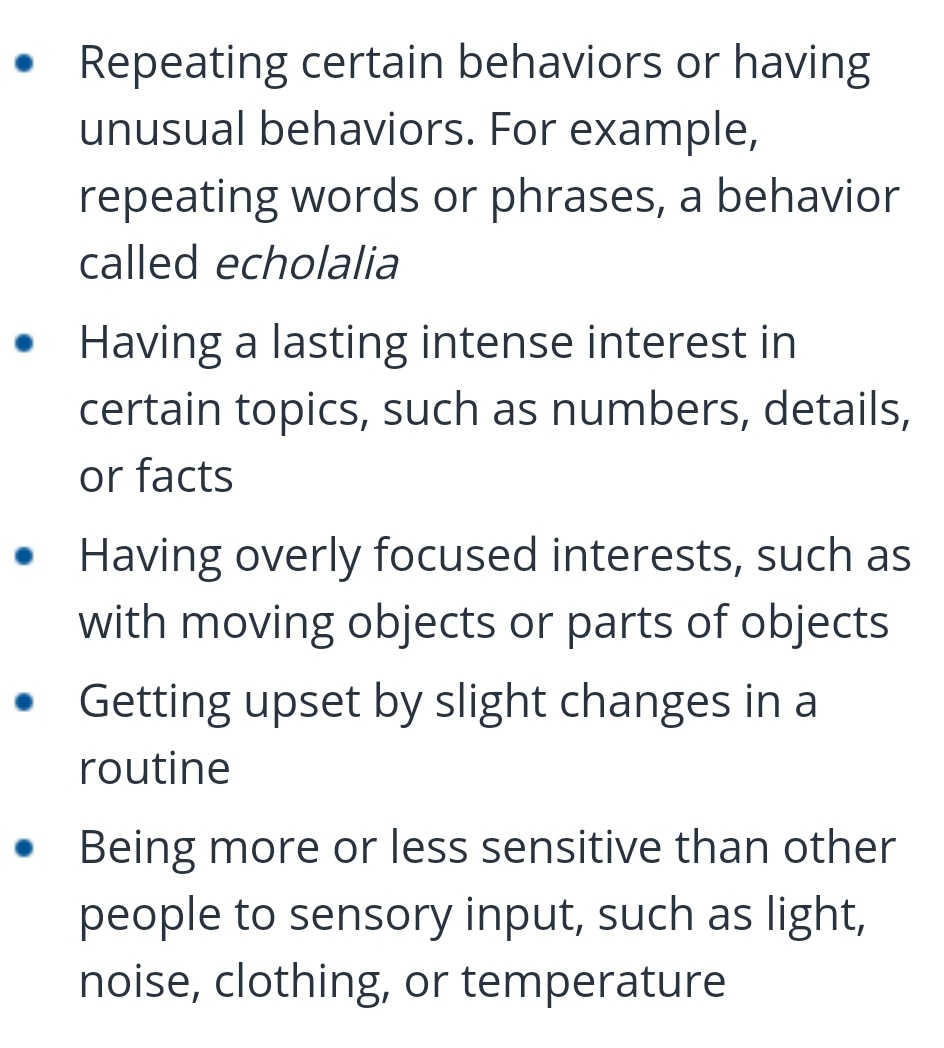note: i am by no means an expert on the subject!! this is purely based on my own research (references are cited at the end of the thread)
according to a guide used to diagnose mental disorders (DSM-5) by the American Psychiatric Association, people with ASD have:
little or inconsistent eye contact: we have noticed how kato misses to make eye contact several times, even when people are directly speaking to her.
not looking/listening to people: we& #39;ve also noticed how kato easily drifts our of the conversation.
being slow in responding to verbal attempts toget one& #39;s attention.
(all videos are from @wtfockenglish)
being slow in responding to verbal attempts toget one& #39;s attention.
(all videos are from @wtfockenglish)
having difficulties with the back and forth of conversation: we can notice this on kato quite frequently. when having a conversation, she does not seem to correctly engage w the other person and changes subject out of nowhere. (vc: wtfockenglish)
talking on length about an interest w/o realizing the others are not interested: we notice this a lot when she speaks about the dance competition (she keeps bringing up the subject w moyo, talks extensively about it)
vc: wtfockenglish
vc: wtfockenglish
body movements/facial expressions do not match what is being said: this!!! there& #39;s lots of comments about how kato& #39;s body language seems "off" and does not look honest/real
i& #39;d also like to point out her reaction to things others would find interesting or amusing; for example, the rooftop for the dance battle. the moment they go up, she doesn& #39;t show any sort of emotion towards the view, etc.
unusual tone of voice: lots of comments are about kato& #39;s monotonous voice, her almost robotic and too flat tone (which is another reason her words seem "off")
having trouble understanding how others may react or their actions: we keep seeing this, the most visible example on the way she didn& #39;t quite understand how amber would react to the sponsored package. we also see it when she does not get jens& #39; flirting (vc: @wtfockenglish)
being very interested in people or their actions but not knowing how to engage with them. we kept seeing this on kato before she actually got in a relationship with moyo. (vc: wtfockenglish)
this is one of the main things this season: repetitiveness. we keep seeing the same routine, same behaviors from kato, etc. is this a way the #WTFock team is pulling us into kato& #39;s world and how she experiences it?
kato also has a deep, solid interest for dance. you can see how focused she is on it and how her behavior grows confident once she& #39;s doing it.
being upset by changes in routine + irritability!! both things we& #39;ve seen on kato. when there are changes in schedule or the plan drifts off from the original one, she& #39;s upset (vc: wtfockenglish)
tw // anxiety, self-harm
constant anxiety is frequent in kids & adults with autism. triggers can be noisy environments and the difficulty of social interactions. it can lead to self harm. kato wears the rubber bands on her wrist as a coping mechanism for anxiety.
constant anxiety is frequent in kids & adults with autism. triggers can be noisy environments and the difficulty of social interactions. it can lead to self harm. kato wears the rubber bands on her wrist as a coping mechanism for anxiety.
being more sensitive towards sensory input, noise. this is harder to notice, but it is also there. notice the way kato reacts to amber& #39;s touch
it& #39;s important to point out that autism in girls, and sometimes it overlaps diagnoses such as obsessive compulsive disorder
here& #39;s an article on the differences between ASD on girls and boys https://www.scientificamerican.com/article/autism-it-s-different-in-girls/
and">https://www.scientificamerican.com/article/a... my references:
- https://www.cdc.gov/ncbddd/autism/facts.html
-">https://www.cdc.gov/ncbddd/au... https://www.nimh.nih.gov/health/topics/autism-spectrum-disorders-asd/index.shtml
-">https://www.nimh.nih.gov/health/to... https://www.theneurotypical.com/conversation-with-an-adult-with-hfa.html
-">https://www.theneurotypical.com/conversat... https://www.autism.org.uk/advice-and-guidance/topics/mental-health/anxiety
-">https://www.autism.org.uk/advice-an... https://www.calmclinic.com/anxiety/treatment/wrist-band">https://www.calmclinic.com/anxiety/t...
and">https://www.scientificamerican.com/article/a... my references:
- https://www.cdc.gov/ncbddd/autism/facts.html
-">https://www.cdc.gov/ncbddd/au... https://www.nimh.nih.gov/health/topics/autism-spectrum-disorders-asd/index.shtml
-">https://www.nimh.nih.gov/health/to... https://www.theneurotypical.com/conversation-with-an-adult-with-hfa.html
-">https://www.theneurotypical.com/conversat... https://www.autism.org.uk/advice-and-guidance/topics/mental-health/anxiety
-">https://www.autism.org.uk/advice-an... https://www.calmclinic.com/anxiety/treatment/wrist-band">https://www.calmclinic.com/anxiety/t...
i hope this helped you understand a bit more of kato! i am by no means defending some of her attitudes and comments, but i thought it& #39;d be interesting to share these. we still haven& #39;t gotten this confirmed by wtfock, but it does make sense with the evidence!
end of thread!!

 Read on Twitter
Read on Twitter















